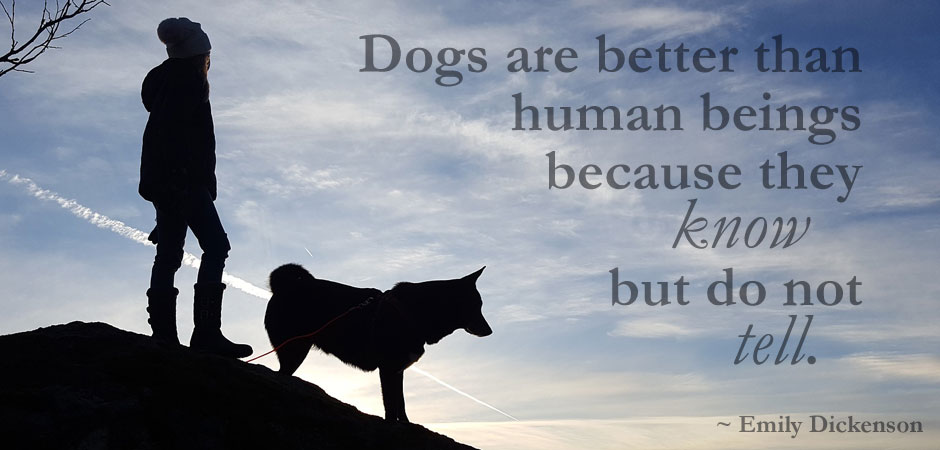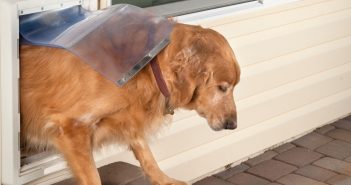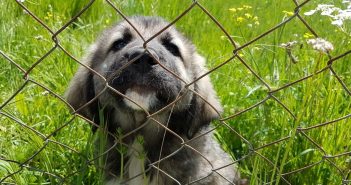The great American poet Emily Dickinson once wrote, “Dogs are better than human beings because they know but do not tell.” The message is one every dog lover knows: dogs are wise in their ability for pure unfettered love and loyalty; they live by it, but they cannot speak it. So when our wise companions get sick, it is not as easy as asking them what and how they’re feeling. This is why it’s important to keep your dog healthy throughout the seasons to avoid health problems.
Help keep your dog healthy this winter with these handy tips:
Be Aware of Seasonal Dangers
Seasonal changes, moving environments, contact with other dogs, kennels, shelters, can always put your dog at risk of infections. Depending on where you live, summer might be time to watch out for Parvo and ticks, while winter means making sure your dog stays warm at night and is protected from the common dog flu or H3N2 virus. According to the Center for Disease Control and Prevention (CDC), canine influenza is a contagious respiratory disease caused by type A influenza.
Some of the symptoms include:
- Cough
- Runny nose
- Lethargy
- Eye discharge and reduced appetite
Treating a dog with canine influenza means mostly supportive care. This includes boosting your dog’s immune system, keeping him away from infected areas, and treating him with highly nutritious diet and even supplements.
Depending on the harshness of the cold weather in your area, other winter risks, as outlined by Dogs Naturally magazine, include:
- Hypothermia: Contrary to what some believe, dogs do in fact feel cold. Hyperthermia develops when too much time is spent in the cold. You might notice a dog behaving anxiously or whining or shaking.
- Watch temperatures. If it’s cold for you without a coat, it might be for them too! Some dog breeds have thicker fur than others. Use sweaters if you have a dog with thin fur.
- Help dry skin. Natural solutions like coconut oil can be great for cracked dog skin in winter.
- Dry Warm Bedding. Don’t let your dog sleep in cold floors keep blankets where they sleep.
Take Preventative Measures
Dogs are What They Eat
Diet is an indispensible to good healthy, energy, and overall well being. In the last couple of years, as recounted by the Huffington Post, the public has heard about a variety of recalls by dog food companies. There are a few things to consider when buying your dog food to ensure the best possible nutrition.
- Read ingredient list carefully
- Discuss your pet’s nutritional needs with your vet. Your pet might have specific needs due to a condition, age, or illness.
- Watch out for fillers and ingredients that cause food allergies
- If possible, look for grain-free formulas
Keep Immune System Up
While you can’t keep your dog from getting into things all the time, you can protect him by boosting his immune system and making sure they are strong enough to push back infections. Animal Wellness magazine suggests a few key ideas:
- Minimize vaccines. Do not over vaccinate your dog for this will have the adverse effect of helping the fight infections.
- Be careful with over medicating your dog with strong chemicals and medicines. Try looking for natural solutions to problems that might not be that serious, so as not to put powerful chemicals in your dog’s system
- Exercise is key. Just like in humans, an active lifestyle is necessary to remain healthy and ward off illness. Exercise is a natural immune builder and helps combat obesity.
- Consider supplement. While it is difficult to choose the perfect food for your dog. You can often use supplements as a way to fill in any nutritional gaps. This could include vitamins, fish oil, and glucosamine for joints.
We all know stories of the incredible resilience of our K9 partners. They are strong, intelligent, and forgiving. A dog is a profound joy, but also a responsibility that depends on you for its well being. By having awareness of these few preventative tips, your dog will get through the winter strong and healthy.




